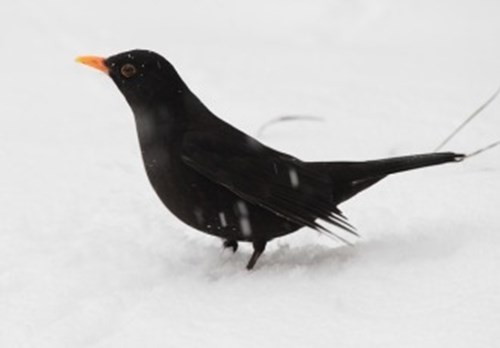Usutu virus: A new addition to the NCPV catalogue

Usutu is an old world flavivirus of increasing notoriety. The virus was first isolated in South Africa in 1959 and was named after the Usutu River in Swaziland. The typical Usutu life cycle involves both mosquitos and birds, and infection within mammals remains uncommon. However, transmission to humans, rodents, bats and horses as incidental hosts has been reported. Infection within humans is mainly asymptomatic although occasional, serious complications in immunosuppressed patients have been reported.
The Usutu virus was first reported in Europe in Austria in 2001 where it caused significant mortality in wild perching birds, mainly blackbirds. Usutu virus was subsequently reported in other European countries but declined after 2005. In 2016, cases of Usutu virus in Austria increased again in wild birds and cases were subsequently reported in the Netherlands, Belgium, France and Germany. Wild bird and mosquito monitoring studies are ongoing to determine the impact of this zoonotic infection.
NCPV has recently made available a strain of Usutu virus (Catalogue number 1105081v). This strain was originally isolated by Dr Jordi Casals in the 1960s, and passaged several times in suckling mouse brain, before being deposited with NCPV in 2011 by Professor Ernie Gould. The virus can be supplied as either a cultivatable virus or an RNA product.
To keep up to date with new strains to the collection visit the new viral strains page on the website and follow us on Twitter @NCPV.
